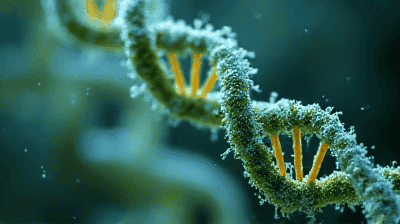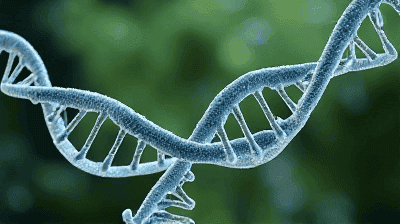
The age-old debate of nature versus nurture is one of the most intriguing discussions in the fields of psychology, sociology, and biology. For centuries, researchers and theorists have sought to understand the extent to which genetics (nature) or environment (nurture) shape our behaviors, personalities, and even our health. This complex interplay has taken an exciting turn with the advent of epigenetics, a relatively new scientific field that explores how environmental factors can influence gene expression without altering the underlying DNA sequence.
Understanding the Nature vs. Nurture Debate
Historical Context
The nature versus nurture debate traces back to ancient philosophers, but it gained significant attention in the 19th and 20th centuries. Early thinkers primarily focused on whether inherited traits or environmental influences played a more crucial role in shaping human development.
- Nature proponents argue for the influence of genetics, asserting that our behaviors and traits are largely pre-determined by our biological makeup. Figures like Charles Darwin emphasized heredity and natural selection, suggesting that complex traits are rooted in genetic inheritance.
- Nurture advocates, on the other hand, highlight the importance of environment, education, culture, and experiences. Psychologists like John B. Watson and B.F. Skinner argued that behavior is heavily influenced by conditioning and environment.
The Dichotomy
Historically, this debate was often viewed as a dichotomy, where one side’s win meant the other side’s loss. However, contemporary research acknowledges the profound interconnections between genetics and environment, suggesting that they work together in shaping individual differences. The concept of gene-environment interaction introduced the idea that genetic predispositions can manifest differently depending on environmental conditions.
What Is Epigenetics?

Defining Epigenetics
Epigenetics is the study of changes in gene activity that do not involve alterations to the DNA sequence itself. It explains how experiences and the environment can lead to chemical modifications in the genome that regulate gene expression. These modifications can occur at various levels, usually through chemical tags that attach to the DNA or to the histone proteins around which DNA is wrapped.
Key Mechanisms of Epigenetic Change
DNA Methylation: This process involves adding a methyl group to the DNA molecule, which can silence gene expression. Methylation patterns can change in response to environmental factors such as diet, stress, and toxins.
Histone Modification: Histones are proteins that help package DNA into a compact form. Chemical changes to histones can affect how tightly or loosely DNA is wound, thereby influencing gene accessibility.
Non-coding RNAs: These molecules play a crucial role in regulating gene expression by interacting with mRNA, the molecule that transmits genetic information from DNA to synthesize proteins.
Heritable Epigenetic Changes
One of the most fascinating aspects of epigenetics is its potential for heritability. While traditional genetics focuses on the transmission of DNA sequences, epigenetics suggests that certain epigenetic modifications can be passed down through generations. This finding has profound implications for the nature versus nurture debate.
Epigenetics Meets the Nature vs. Nurture Debate
The Interplay of Genetics and Environment
Epigenetics provides a biological framework for understanding how nature and nurture interact. It highlights that genes can be turned on or off by external factors, illustrating that our environment does not just influence us but literally modifies our genetic expression.
Case Studies
The Dutch Hunger Winter: Research on the population that experienced famine during World War II revealed that individuals who were in utero during this time exhibited various health issues in adulthood, including obesity and cardiovascular disease. This phenomenon has been linked to epigenetic changes triggered by extreme hunger.
The Agouti Mouse: Studies with mice that possess the Agouti gene demonstrate how diet can impact gene expression. Mice fed a diet supplemented with methyl donors, which influence DNA methylation, produced offspring with healthier traits, showcasing the environmental influence on genetic expression.
Implications for Behavioral Development
Epigenetics deepens our understanding of behavioral traits such as intelligence, temperament, and mental health.
Intelligence: Several studies have indicated that while genetic factors play a significant role in intelligence, environmental influences such as early childhood education and socioeconomic status can significantly affect cognitive development. Epigenetic mechanisms might explain how early experiences can enhance or suppress genetic potential.
Mental Health: Research suggests that individuals with a genetic predisposition for disorders such as depression or anxiety may not develop these conditions if they grow up in supportive environments. The interplay between genetic vulnerabilities and nurturing environments can influence the likelihood of developing mental health issues.
The Role of Epigenetics in Health and Disease

Chronic Diseases and Epigenetics
Epigenetics is crucial for understanding the development of various chronic diseases, including obesity, diabetes, and cancer. These conditions often emerge as a result of complex interactions between genetic predisposition and environmental factors.
Cancer: Malignant tumors frequently exhibit abnormal DNA methylation patterns that silence tumor-suppressor genes. Environmental factors such as exposure to carcinogens can lead to these epigenetic modifications, showcasing how lifestyle choices can impact genetic susceptibility to cancer.
Obesity and Metabolic Disorders: Epigenetic changes triggered by diet, physical activity, and stress can disrupt metabolic pathways and contribute to obesity. For instance, low-quality diets can alter the expression of genes involved in fat storage and metabolism.
The Aging Process
As we age, our epigenetic patterns change, often influencing health outcomes. Studies have suggested that lifestyle factors such as diet, exercise, and stress management can influence the aging process at an epigenetic level. This understanding presents new avenues for interventions aimed at promoting healthy aging.
Ethical and Social Implications of Epigenetics
Addressing Inequality
Epigenetics sheds light on how social and environmental inequalities can impact gene expression and health outcomes, emphasizing the importance of addressing social determinants of health.
- Intergenerational Trauma: Research has highlighted how trauma experienced by one generation can affect the epigenetic programming of subsequent generations. These findings compel society to consider the long-term consequences of psychological and physical trauma, calling for systemic changes to support affected communities.
The Potential for Genetic Determinism
While epigenetics emphasizes the interplay between nature and nurture, there are concerns about how this knowledge might be misused. The potential for genetic determinism arises, where individuals may feel predestined to certain outcomes based solely on their genetic makeup or epigenetic modifications.
Public Perception and Education
As our understanding of epigenetics grows, public perception must also evolve. Misunderstandings about epigenetics can perpetuate stigma, particularly regarding mental health and behavioral traits. It is essential to educate the public on the complexity of gene-environment interactions to foster a more nuanced understanding of human behavior.
Conclusion

The nature versus nurture debate has been revitalized by the insights provided by epigenetics, a field that explores the dynamic relationship between genes and the environment. Epigenetics challenges traditional notions of determinism, illustrating that our genetic expression is not solely dictated by inherited DNA but also by our experiences and environments.
As we continue to explore the implications of epigenetics, we gain a deeper understanding of human development, health, and behavior. This knowledge presents both opportunities and ethical considerations that necessitate mindful discourse and action. Recognizing the intricate dance between nature and nurture is essential for fostering healthier individuals and more equitable societies.
In the end, the question is not whether nature or nurture holds greater significance, but rather how they work together to shape who we are. By embracing the complexities of this interplay, we can develop a more holistic understanding of human behavior and address the broader societal impacts of our choices.








